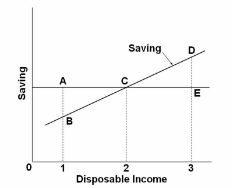What are capital controls? Why might a financial crisis lead to a reconsideration of using capital controls, and what problems might result from the reinstatement of capital controls?
What will be an ideal response?
Capital controls refer to limits on the flow of foreign financial exchange and financial investments across countries. With the globalization of financial markets, financial securities issued in one country are held by investors and firms in many other countries. If a financial crisis causes those securities to decline in value, the financial pain will be widely distributed. The globalization of financial markets has helped increase growth and efficiency in the world economy. This allows for the savings of households around the world to be channeled to the best investments available. It is also possible for firms in nearly every country to tap the savings of foreign households to gain the funds needed for expansion. No longer are firms forced to rely only on the savings of domestic households to finance investment, as they would be with the reinstitution of capital controls.
You might also like to view...
Figure 11-9

In Figure 11-9, how much more than the long-run competitive price will the profit-maximizing monopolist charge?
a.
$1
b.
$2
c.
$3
d.
$11
Refer to the saving schedule above. Dissaving occurs when disposable income is:

A. Equal to level 2
B. Less than level 2
C. Greater than level 2
D. Equal to level 3